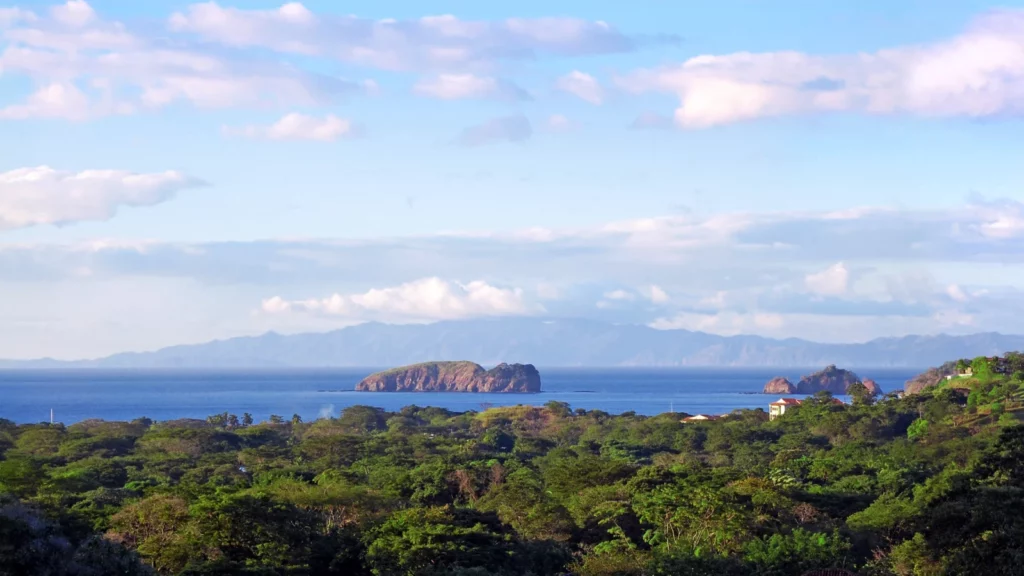Expert Advice and Practical Tips for Investing in Costa Rica
Actionable Tips, Regional Insights, and Tools to Navigate Costa Rican Real Estate Like a Pro

What You'll Learn
Legal Requirements
You'll understand property rights, visa requirements, and legal processes for foreign investors
Investment Strategies
Proven approaches for both short-term gains and long-term wealth building in Costa Rica
Risk Management
Essential tips to protect your investment and navigate common challenges
I wanted a vacation rental that would also grow in value. Costa Rica Investments found me a $1.7M colonial home in Uvita, managed a $300K renovation, and split it into two ocean-view lots. In 12 months, my $2M investment became a $3.3M asset — a 65% return!
They handled the entire process while I stayed home — it was seamless.”
Investing in Costa Rica offers remarkable opportunities, but success requires specialized knowledge. This guide provides essential advice for foreign investors looking to navigate the Costa Rican real estate market effectively.
1. Conduct Professional Due Diligence
Every successful Costa Rica investment begins with thorough due diligence:
- Verify property titles through the National Registry (Registro Nacional) at www.rnpdigital.com or in person at offices in San José. Request both the “informe registral” and “plano catastrado” (survey map).
- Check for encumbrances by obtaining a certified study of the property from a licensed Costa Rican attorney who can identify liens, easements, or claims against the property.
- Verify property tax status through the municipal government where the property is located. Properties with tax arrears can transfer these liabilities to new owners.
- Research zoning and building restrictions through the municipality’s regulatory plan (Plan Regulador). Coastal areas have stricter regulations, particularly within the Maritime Zone.
- Conduct environmental assessments through SETENA (National Environmental Technical Secretariat) to identify protected areas, water sources, or environmental liabilities.
Warning: A good percentage of properties in Costa Rica have some form of title defect. Never waive due diligence even under pressure to close quickly.
2. Assemble a Qualified Local Team
Your investment success depends heavily on your professional team:
- Real Estate Attorney – Choose an attorney specializing in real estate with at least 5 years of experience working with foreign investors. Expect to pay $1,500-3,000 for a standard transaction.
- Licensed Real Estate Agent – Verify membership in the Costa Rican Chamber of Real Estate Brokers (CCCBR). Commission rates typically range from 5-7% of the purchase price.
- Professional Property Inspector – Hire an inspector with ICC (International Code Council) or equivalent certification, as Costa Rica has unique construction considerations due to humidity, earthquakes, and volcanic activity. Inspections cost $350-700 depending on property size.
- Property Management Company – If purchasing for rental income, engage a management company that provides monthly financial reports, maintenance coordination, and marketing services. Management fees range from 20-30% of gross rental income.
- Tax Advisor – Consult with a tax specialist familiar with both Costa Rican tax law and your home country’s regulations to optimize tax efficiency.
3. What Are The Legal Ownership Structures in Costa Rica?
Costa Rica offers several ownership structures, each with distinct advantages:
Direct Personal Ownership
Pros: Simplest structure, no annual corporate fees, direct control
Cons: Personal liability exposure, potential inheritance complications, name appears in public records
Best For: Primary residences, small residential properties
Sociedad Anónima (S.A.) / Corporation
Pros: Liability protection, privacy, easier transfer of ownership, multiple owners possible
Cons: Annual corporation tax (approximately $300-400), more administrative requirements
Best For: Rental properties, commercial investments, luxury homes, properties with multiple investors
Limited Liability Company (S.R.L.)
Pros: Similar benefits to S.A. but with simplified governance, good liability protection
Cons: Annual filing requirements, setup costs of $1,000-1,500
Best For: Balance of simplicity and protection for medium-sized investments
Legal Tip: The 2024 updates to Costa Rica’s corporate transparency laws require disclosure of “beneficial owners” regardless of structure. Privacy concerns should be discussed with your attorney.
4. Select Your Investment Strategy
Tailor your approach based on your investment goals:
Short-Term Strategy (1-3 years)
- Focus on turnkey properties in established tourist areas
- Target properties with immediate rental potential
- Budget 5-10% of purchase price for modernizing amenities
- Prioritize properties with pools and air conditioning (increases rental rates by 15-20%)
- Consider pre-construction purchases from reputable developers (typical discount: 15-25%)
Medium-Term Strategy (3-7 years)
- Target properties in developing areas with announced infrastructure improvement
- Seek properties with value-add potential through renovation or expansion
- Consider small multi-unit properties with steady cash flow
- Balance between rental income and appreciation potential
- Look for properties with subdivision potential
Long-Term Strategy (7+ years)
- Focus on land banking in path-of-growth areas
- Consider commercial properties with stable tenants
- Invest in larger development projects with phased approaches
- Target areas with strong demographic trends
- Consider agricultural properties with dual income potential
Strategic Tip: Properties requiring extensive renovations typically sell at 30-40% below market value in Costa Rica, but renovation costs can exceed North American estimates by 15-20% due to import taxes on materials.
5. Calculate True ROI Potential
Accurate financial analysis requires considering all Costa Rica-specific factors:
Acquisition Costs:
- Purchase price
- Transfer tax (1.5% of registered value)
- Legal fees (1-1.5% of purchase price)
- Notary stamps and registration fees (0.5-0.8%)
- Title insurance (optional but recommended: 0.5-1%)
Annual Holding Costs:
- Property tax (0.25% of registered value)
- Luxury home tax (progressive rate for properties >$230,000)
- Corporation tax (if applicable: ~$300-400 annually)
- Insurance (0.2-0.4% of property value annually)
- Maintenance (2-4% of property value annually in tropical climate)
- Property management (20-30% of gross rental income)
- Income tax on rental income (15% flat rate)
What You Need to Consider for Your Rental Income
- Seasonal occupancy fluctuations (typically 30-40% lower in green season)
- Booking platform commissions (15-25%)
- Utility costs (higher than North American averages by 20-30%)
- Replacement reserves for furnishings and appliances (5-10% of rental income)
ROI Calculation Tip: Use a conservative occupancy estimate of 60% for high season and 30% for green season when calculating potential rental income.
6. Risk Management Essentials
Protect your investment with these risk mitigation strategies:
Title Risks: Purchase title insurance through companies like First American Title or Stewart Title (cost: 0.5-1% of property value).
Currency Risk: Structure mortgages in the same currency as your rental income (typically USD for tourist rentals).
Property Security: Install monitored security systems ($500-1,500 installation, $50-150 monthly monitoring) and hire caretakers for isolated properties.
Natural Disaster Risk: Obtain comprehensive insurance covering earthquakes, floods, and landslides (cost: 0.3-0.5% of property value annually).
Political/Legal Risk: Structure large investments through international holding companies with arbitration clauses in purchase contracts.
Management Risk: Establish clear reporting requirements with property managers, including monthly financial statements and occupancy reports.
Risk Management Tip: Properties on slopes greater than 30% carry significantly higher insurance costs and maintenance expenses. Engineering reports are essential for hillside properties.
7. Closing Process
Understanding the purchase process helps prevent costly mistakes. Have your attorney draft or review purchase agreement before signing. Never use standard forms without legal review. Use a reputable escrow service for all financial transactions. Recommended providers include Stewart Title, First American, and Escrow Costa Rica. Negotiate a 30-45 day due diligence period with refundable deposit (typically 5-10%). Prepare necessary closing documents in advance, including: valid passport, Tax ID number (if applicable), corporate documents (if purchasing through entity) and source of funds documentation.
Once you reach property transfer phase attend the closing at the attorney’s office or arrange power of attorney if unable to attend in person. The final step is registration. Your attorney will register the transfer with the National Registry, typically taking 2-4 weeks for completion.
Closing Tip: Schedule your closing for early in the week to avoid delays that might push registration into the following week.
8. Optimize Tax Planning
Effective tax strategies can significantly improve investment returns:
Income Tax: Rental income is taxed at a flat 15% rate. Maintain detailed expense records as certain costs can offset taxable income.
Capital Gains: Costa Rica implemented a 15% capital gains tax in 2019, but properties acquired before this date may qualify for exemptions.
Depreciation: Buildings can be depreciated over 50 years (2% annually) for tax purposes.
Value Added Tax (VAT): Short-term rentals (under 30 days) are subject to 13% VAT. Register with tax authorities if operating vacation rentals.
Municipal Taxes: In addition to property tax, businesses may be subject to municipal operating licenses and fees.
Wealth Tax Considerations: Costa Rica does not currently impose wealth taxes on property holdings.
Tax Planning Tip: Consult with tax advisors in both Costa Rica and your home country. The Foreign Account Tax Compliance Act (FATCA) and similar regulations require reporting foreign property holdings in many jurisdictions.
9. Property Management Best Practices
Effective management is crucial, especially for foreign investors:
Management Structure: Professional management is strongly recommended for non-resident owners. Costs range from 20-30% of gross rental income for full-service management.
Rental Licensing: Register with the Costa Rican Tourism Institute (ICT) and municipal authorities to legally operate vacation rentals.
Maintenance Planning: Budget 2-4% of property value annually for maintenance. Tropical environments accelerate wear and tear on buildings and systems.
Staff Considerations: If employing on-site staff, understand Costa Rican labor laws, which include mandatory Christmas bonuses, vacation pay, and social security contributions.
Security Measures: Implement appropriate security based on location and property type. Options range from 24-hour guards in luxury properties to smart monitoring systems for moderate investments.
Utility Management: Implement water conservation measures as rates increase dramatically with higher consumption. Solar installations can offset electricity costs with typical ROI of 5-7 years.
Management Tip: Require monthly financial reports, occupancy statistics, and maintenance updates from property managers. Schedule quarterly performance reviews and annual property inspections.
Ready to start your investment journey? Work with qualified professionals who understand both Costa Rican real estate and the unique needs of foreign investors.
This guide was last updated March 2025 and reflects current market conditions and regulations. Investment strategies should be tailored to individual financial situations and goals.
Invest with Confidence and Security
Why choose Investing Costa Rica?
We protect your interests with thorough due diligence and compliant investment structures.
Unbiased
We are independent investment advisors, not realtors.
$1B in Sales
Managed $1B Sales in Costa Rica
100+ Completed Projects
Helped Investors with 100+ Investments
7-10%
Average Returns 7-10%
Frequently Asked Questions about investing in Costa Rica
Can foreigners own property in Costa Rica?
Yes, foreigners have the same property rights as Costa Rican citizens. You can own property in your name or through a corporation. The only restriction is on maritime zone properties (within 200 meters of the high tide line), which require special concessions and can't be fully owned by foreignersWhat taxes do I need to consider when buying real estate?
Several taxes apply to real estate transactions and ownership: Transfer tax: 1.5% of the property value, legal stamps and fees: approximately 1% of the property value, annual property tax: 0.25% of the registered property value, luxury home tax: applies to properties valued over $230,000 (progressive rate) and corporation tax, annual fee if you own property through a corporation.Are there financing options available for foreign buyers?
Yes, though options may be more limited than in your home country. Local banks offer mortgages to foreigners with interest rates typically ranging from 7-9%, where required down payment is usually 20-30% of the purchase price. Seller financing is common, especially for new developments. Also, international banks may offer better rates but require assets in your home country.Do I need property management if I don't live in Costa Rica?
While not legally required, professional property management is highly recommended for absentee owners. They handle maintenance, rental management, bill payments, and security. Costs typically range from 20-30% of rental income for full-service management.What are the legal requirements for purchasing property?
Key legal requirements include a valid passport, purchase agreement drafted by a licensed attorney, property registration in the National Registry, due diligence process including title search and an escrow account for the transaction (recommended).What insurance do I need for my property?
Recommended insurance coverage includes property insurance (covering natural disasters), liability insurance, title insurance (optional but recommended), and rental insurance, if operating as a vacation rental.
Why Choose Us Over Traditional Realtors?
our pricing
Traditional Realtors
- Advice: Sales-driven
- Pricing: Commission-based
- Local Expertise: Varies
- Network Access: Limited to their portfolio
Investing Costa Rica
- Advice: Always in your best interest
- Pricing: Transparent, Tax-deductible
- Local Expertise: 20+ Years
- Network Access: Full
We Stay Ahead of Market Changes
We continuously monitor and adapt to changes in market opportunities, investment regulations and economic conditions.
Our Investments Experts
Our greatest asset is our people!
Chat with a Costa Rica Investment, Real Estate or Relocation specialist today
Testimonials
Trusted by Investors Like You
Relocate seamlessly with comprehensive support for housing, lifestyle, and legal processes.
$2 million investment (purchase + renovation) turned into a $3.3 million portfolio — in under a year
I wanted to buy a vacation rental in Costa Rica that could also appreciate over time. Costa Rica Investments helped me find a colonial-style home in Uvita for $1.7M with incredible Whale Tail views.
They managed everything — from the search to the full renovation, which cost another $300K. They even subdivided the property into two ocean-view lots. One now holds a modern villa worth $2.3M, and the other is a $1M undeveloped lot.
In 12 months, my $2M investment turned into a $3.3M asset. I rent the home out and use it when I visit. They handled the entire process while I stayed home — it was seamless.
A Dream Home in Costa Rica Made Possible
Simply put, my home in Costa Rica would not have happened without Richard, Erick, and the rest of the team. For me to accomplish the goal of a home in Costa Rica was no small task. I don’t speak Spanish and had never invested in a foreign country before – sounds daunting, right? I thought so too. But from day 1, Richard and Erick educated me, guiding me through the rigorous process of building a home in CR. As a business owner myself, I fully admire their approach. They have strong relationships countrywide, but they still question everything and always hold individuals accountable. There were many occasions where Erick stepped in and corrected a colossal mistake before it occurred, saving me time, stress, and money. I fully encourage those who are on the fence about reaching out, make the call. If I didn’t, I would still be in planning phase, now I’m sitting in a newly finished home in CR – all thanks to them! You will not regret it.
Outstanding Team
Richard and Team were absolutely outstanding. Extremely knowledgeable. I just could not imagine making an investment in CR without their services.







